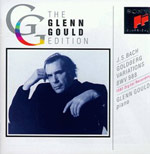WORDLESS PLAYTIME | |

| Writing about music is, supposedly, like dancing about architecture - or is it brass-rubbing about quantum physics? There are only so many times you can call a guitar solo 'splenetic' or rearrange the words 'album', 'difficult' and 'second' in a novel and surprising manner. And as for puns on "Bo! Selecta"... But the problem I've been having lately is with the words. Just as I can't remember one tune while another one's playing, I've recently discovered that I can't write anything while someone's singing in the background. I've even had to rest my played-to-the bone copy of 69 Love Songs, as Stephin Merritt's bon (and mechant) mots find themselves appearing in the most inappropriate places on my screen. And since working in silence brings back Pavlovian nightsweats about toiling in an office, there are only two options - instrumental music, or songs in a language I don't understand. Let's define terms here. I'm not arguing for in-house muzak, to lull me through the drudgery so that I forget that I'm as much a wageslave as anyone else. It will be a celebratory moment to match the fall of the Berlin Wall when the last person to play 'Everybody Hurts' on the panpipes is hanged with the intestines of the last person who ordered it to be played in a lift. I still want music that moves and strokes and hurts as hard as the best of Costello and Cave. But sometimes I want it to work on the slice of brain that doesn't do words. The first candidate is Glenn Gould's 1955 recording of the Goldberg Variations. Now, as a rule, I don't like Bach. Music for mathematicians. Beecham's definition of the sound of the harpsichord: "Two skeletons copulating on a corrugated roof." Moreover, my grasp of 'proper' music is woolly at best - I know Vanessa-Mae isn't 4REAL, but I don't know who is. When Gould's notes muse on "a certain analogy with the passacaille style of reiterated bass progression" and "motivic collaboration or extension between successive variations", that's when I reach for the comparative security of my Dannii Minogue 12-inches. But just listen. Not only does Gould reject Bach's sterile harpsichord for the warmth and complexity of a modern piano, but his legendary eccentricity burns through - turn it up one louder and you can hear him humming along as he plays. The fourteenth variation seems to have about fourteen different ideas trying to escape from the keyboard and degenerates into something approaching a syncopated nervous breakdown. Forget the mockney shambles that is Nige Kennedy - it was Gould who made classical music the new rock 'n' roll. His genius was that he did it before even rock 'n' roll was the new rock 'n' roll. |

| The Jerry Lee Lewis of Carnegie Hall aside, there's a time in everybody's life when a little Japanese primitive pop-jazz is called for, and Maher Shalal Hash Baz provide 75 minutes of it in their infinitely weird compilation From A Summer To Another Summer (An Egypt To Another Egypt) . Fingernail/blackboard interface guitars, Mo Tucker-esque percussion (one of the credited drummers is 'One Of The Audience') and winsome, meaningless (to me) vocals provide the soundtrack to a Murakami novel, or just a suitable accompaniment to watching Japanese 17-year-olds ambling through Camden Market. But the killer ingredient here is the euphonium of Hiroo Nakazaki. The notes (by Telstar Ponies' David Keenan) refer to the instrument's "distinctively forlorn parp", which is underselling the sheer, beauteous melancholy of this bonsai tuba - imagine the death-throes of Eeyore, and then some. So, two albums that will allow you to work without sapping your will to keep breathing. Music to watch words go by. © TIM FOOTMAN 2001 |